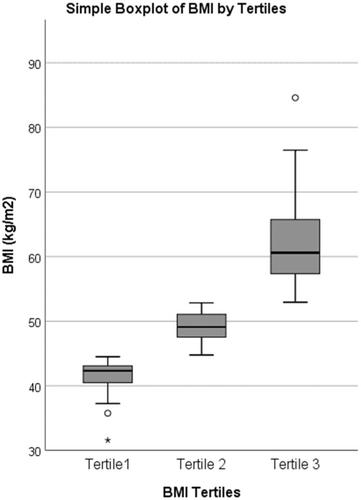Unique dietary and oral hygiene behaviors in a cohort with clinically severe obesity: A cross sectional study
Abstract
Background
An association between increased risk of dental caries with increased levels of clinically severe obesity has been reported. Data linking body mass index (BMI) and dietary behaviors, including at-risk dietary factors and oral hygiene habits, are lacking in a cohort with clinically severe obesity. This study aimed to explore the dietary and oral hygiene behaviors in individuals with clinically severe obesity attending a hospital-based obesity service.
Methods
Adult patients attending a hospital-based obesity service in Greater Western Sydney with clinically severe obesity were invited to participate in a self-administered survey, which collected data on their nutritional and oral hygiene behaviors. Demographic data (age, gender) and BMI were extracted from the participants' medical records. The primary outcome was the relationship between BMI and frequency of toothbrushing.
Results
Of the 82 individuals who consented to participate, 81 (98.8%) completed the study questionnaire. The median BMI of the cohort was 49.1 kg/m2 (interquartile range [IQR]: 43.2–57.3 kg/m2) and median age 51 (IQR: 39–63) years. BMI was not significantly correlated with individual oral health behaviors (p > .05). Many participants reported dietary risk behaviors, which have the potential to influence their oral health.
Conclusions
While oral health behaviors were not associated with increasing BMI, patients with clinically severe obesity in this study reported unique dietary behaviors and mixed oral hygiene habits that may complicate nutritional and dental management. Awareness of these behaviors among clinicians including dental professionals is required in this cohort.


 求助内容:
求助内容: 应助结果提醒方式:
应助结果提醒方式:


